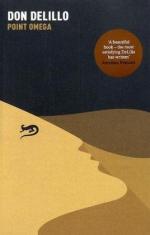|
This section contains 1,344 words (approx. 5 pages at 300 words per page) |

|
Don DeLillo occupies a relatively sun-lit corner of that school of American writers who might be called Occultists—not because they deal with the supernatural (though some occasionally do) but because they see hidden correspondences between phenomena of the most heterogenous kind. Everything is in code; sometimes the code is to be compared, structurally, with other codes, all of them equally filled with, or devoid of, significance. John Barth's monumental Letters is a good example of the genre. So are Pynchon's V, The Crying of Lot 49, and Gravity's Rainbow. Often such fiction has a pronounced paranoid streak: not only codes but conspiracies abound, and for every conspiracy there is a counter-conspiracy and then a counter-counter-conspiracy that mirrors the first—and on and on in what can seem like an infinite regress.
Occultist novels provide engrossing games for the adept. For others, they are likely to seem static, even...
|
This section contains 1,344 words (approx. 5 pages at 300 words per page) |

|


